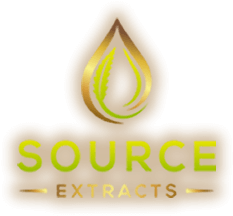FDA Update March 5, 2020
The U.S. Food and Drug Administration (“FDA” or “agency”) Commissioner Stephen Hahn M.D. recently issued a statement to update the public on the FDA’s work related to CBD products. The statement was released in conjunction with a formal report issued to Congress by the FDA to update Congress on their hemp-derived CBD regulatory activities.
In the statement, the Commissioner highlighted the FDA’s ongoing efforts to educate the public about potential risks of CBD but also acknowledged the agency does not know CBD to be specifically unsafe. While the FDA has expressed concerns about potential risks associated with the use of CBD, they admit they have seen only limited data about CBD’s safety and are committed to seeking answers and providing stakeholders with regulatory guidelines.
FDA Knowledge Gaps
Commissioner Hahn said in his statement, “other than the approved prescription drug [Epidiolex], we know little about the potential effects of sustained and/or cumulative use of CBD, co-administration with other medicines, or the risks to vulnerable populations like children, pregnant and lactating women, the elderly, unborn children and certain animal populations. This does not mean that we know CBD is unsafe to these populations or under these circumstances, but given the gaps in our current knowledge, and the known risks that have been identified, we also are not at a point where we can conclude that unapproved CBD products are safe for use.”
The FDA provided examples of questions they are considering as they develop positions to support regulatory policy and enforcement:
1. What happens if you use CBD daily for sustained periods of time?
2. What level of intake triggers the known risks associated with CBD?
3. How do different methods of exposure affect intake (e.g., oral consumption, topical, smoking or vaping)?
4. What is the effect of CBD on the developing brain (such as children who take CBD)?
5. What are the effects of CBD on an unborn child or breastfed newborn?
6. How does CBD interact with herbs and botanicals?
7. Does CBD cause male reproductive toxicity in humans, as has been reported in studies of animals?
8. Are there differing safety concerns for use in certain animal species, breeds, or classes?
9. Are any residues formed in edible tissues of food producing animals?
The FDA’s report to Congress also highlights considerations around CBD products that are labeled as “full-spectrum” or “broad-spectrum” hemp extracts. The agency said it is actively seeking information regarding the processes by which “full spectrum” and “broad spectrum” hemp extracts are derived, what the content of such extracts is, and how these products may compare to CBD isolate products.
In order to answer these questions and close their noted knowledge gaps, the FDA has re-opened a public docket that will remain open “indefinitely to allow the public to comment and to share relevant data with the agency”. In their report to Congress, the FDA has encouraged all stakeholders to share their studies with the agency in order to educate and inform decisions. The docket will allow for confidential or proprietary research to be submitted by “industry participants, academic researchers, and other stakeholders … including information about specific products, which could help inform appropriate regulatory steps.”
Progress?
Commissioner Hahn noted in his statement, “As we move forward, we are currently evaluating issuance of a risk-based enforcement policy that would provide greater transparency and clarity regarding factors the agency intends to take into account in prioritizing enforcement decisions. Any enforcement policy would need to further the goals of protecting the public and providing more clarity to industry and the public regarding the FDA’s enforcement priorities while we take potential steps to establish a clear regulatory pathway.”
All stakeholders would agree that the need for definitive FDA regulatory positions are critical for the industry to grow. The Commissioner’s statement and the FDA report to Congress on March 5 describe the FDA’s ongoing efforts but provide very little in the form of actual guidance or policy updates. A number of stakeholders have expressed their dissatisfaction with these communications.
In response to FDA’s March 5 letter, Steve Mister, president and CEO of the Council for Responsible Nutrition (CRN; Washington, DC), said in a public statement: “CRN is disheartened by today’s FDA report to Congress on CBD. The time for ‘active consideration and evaluation’ has long since passed. As we’ve said before, the time for action was more than a year ago, but we will settle for now. Today’s report amounts to more bureaucratic can-kicking, and Congress should recognize it as such and take action now to declare CBD a lawful dietary ingredient. That will direct FDA to allow CBD in dietary supplements and impose that significant regulatory framework on these products.”
Daniel Fabricant, PhD, president and CEO of the Natural Products Association (NPA; Washington, DC), issued this comment: “This is more of the same from FDA: All words and no action. The longer FDA waits to regulate the CBD industry, the greater chance we have of risking another public health crisis. Setting a safe level of consumption for CBD products is the best way to move forward with this promising new product while protecting consumers.”
While there might not be much in the way of policy updates with this communication, the general tone of these statements seems to be indicating a regulatory pathway is indeed forthcoming. Commissioner Hahn said in a public speech in February 2020, “People are using these products. We’re not going to be able to say you can’t use these products. It’s a fool’s game to try to even approach that.”

